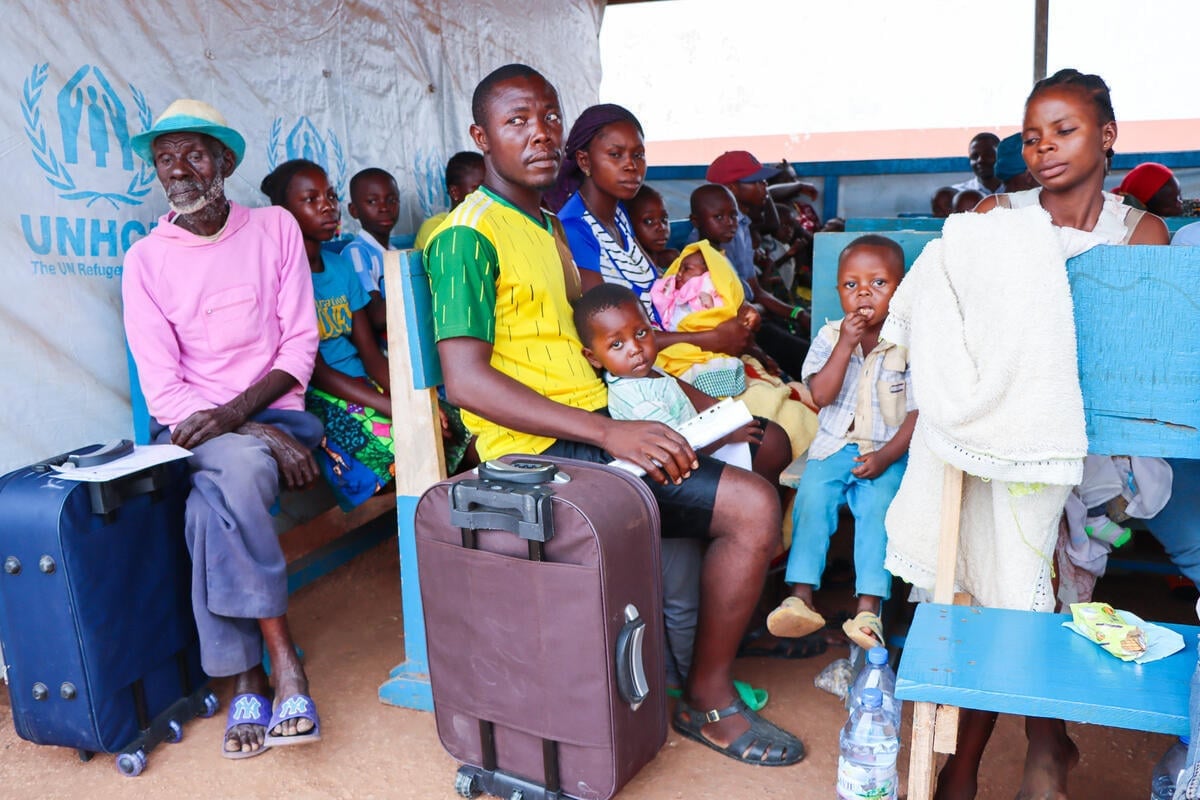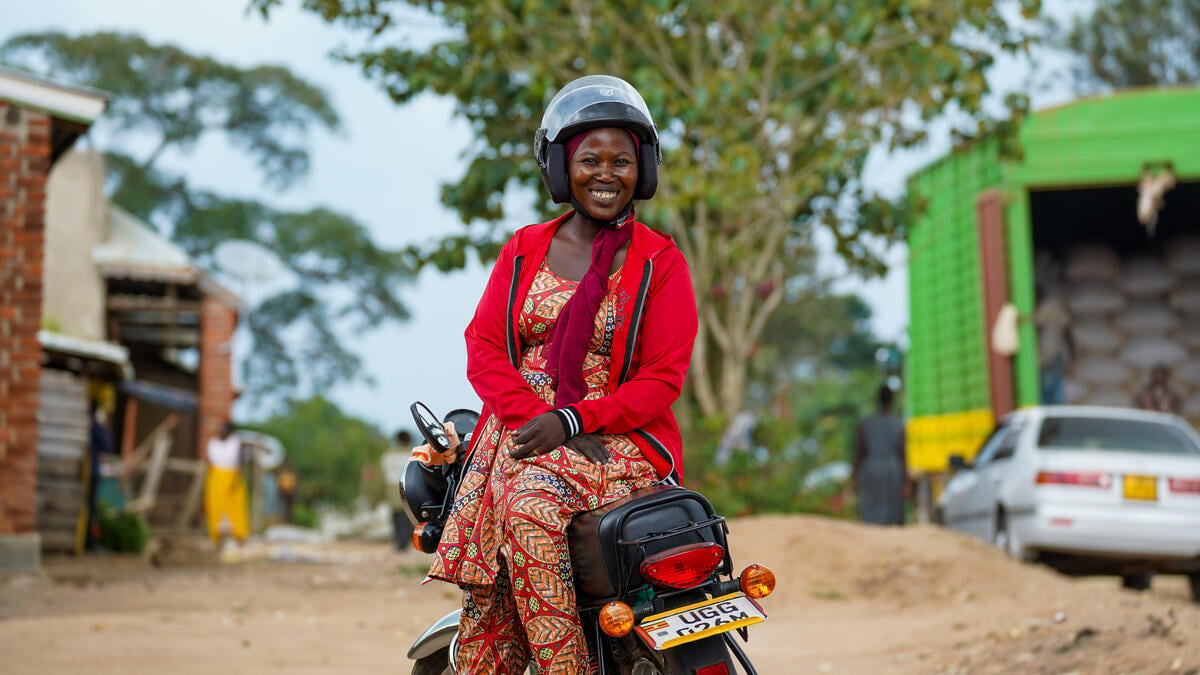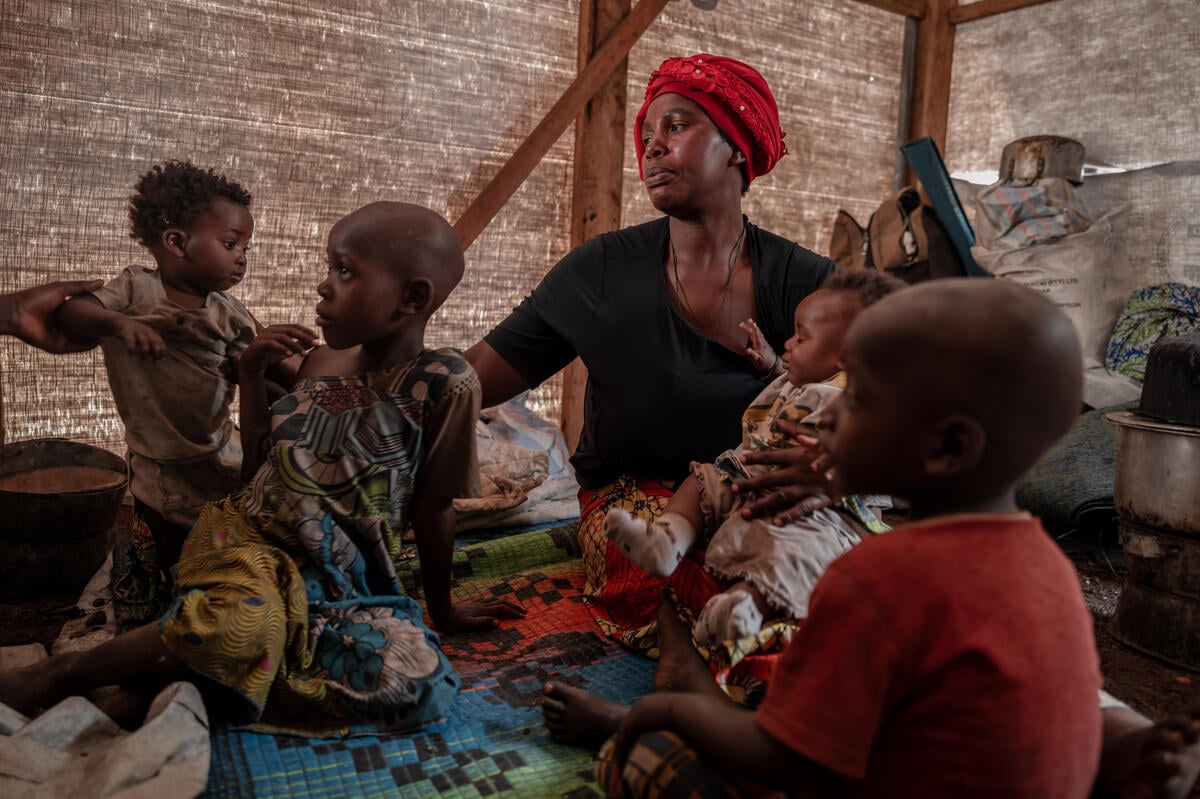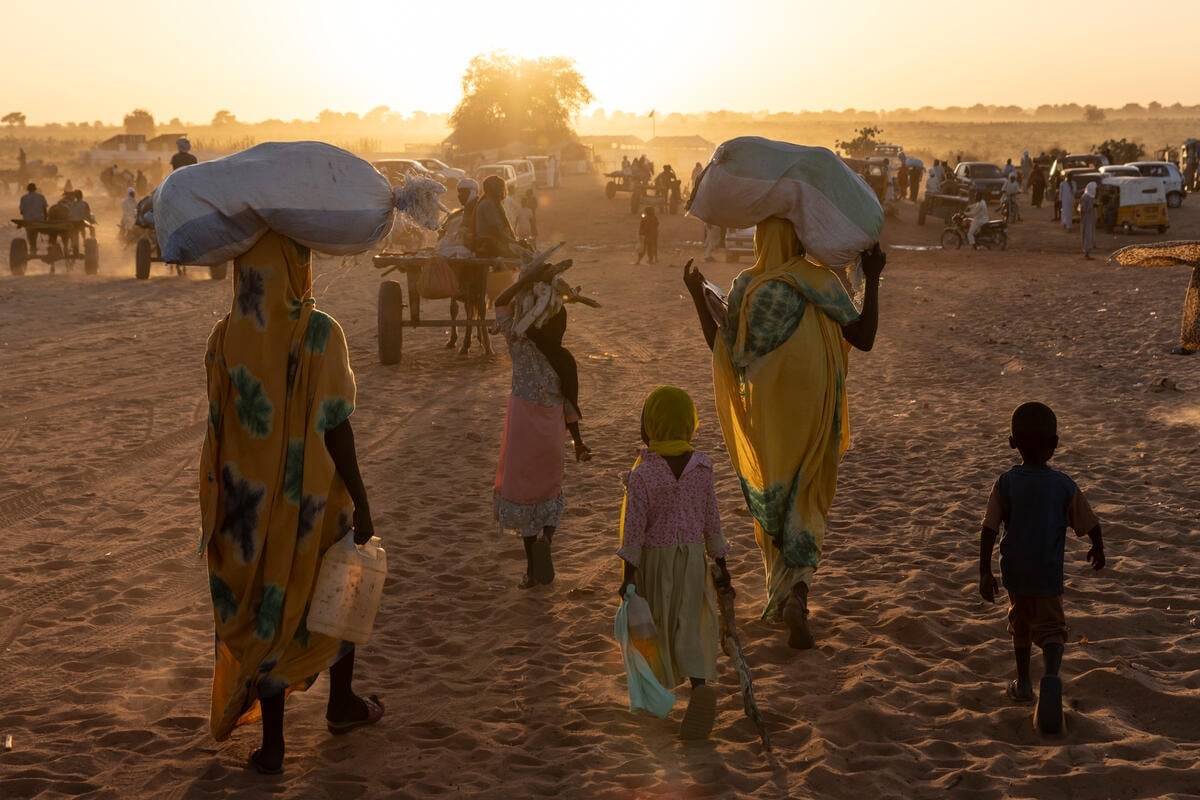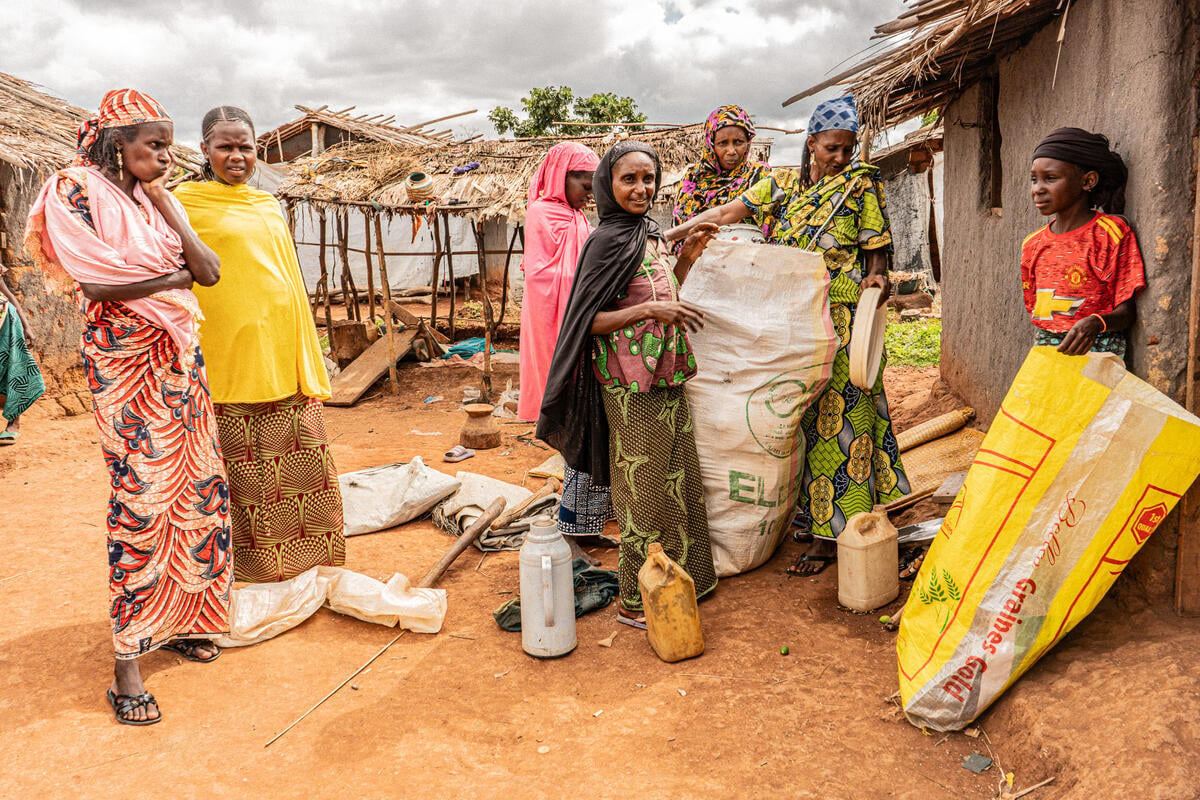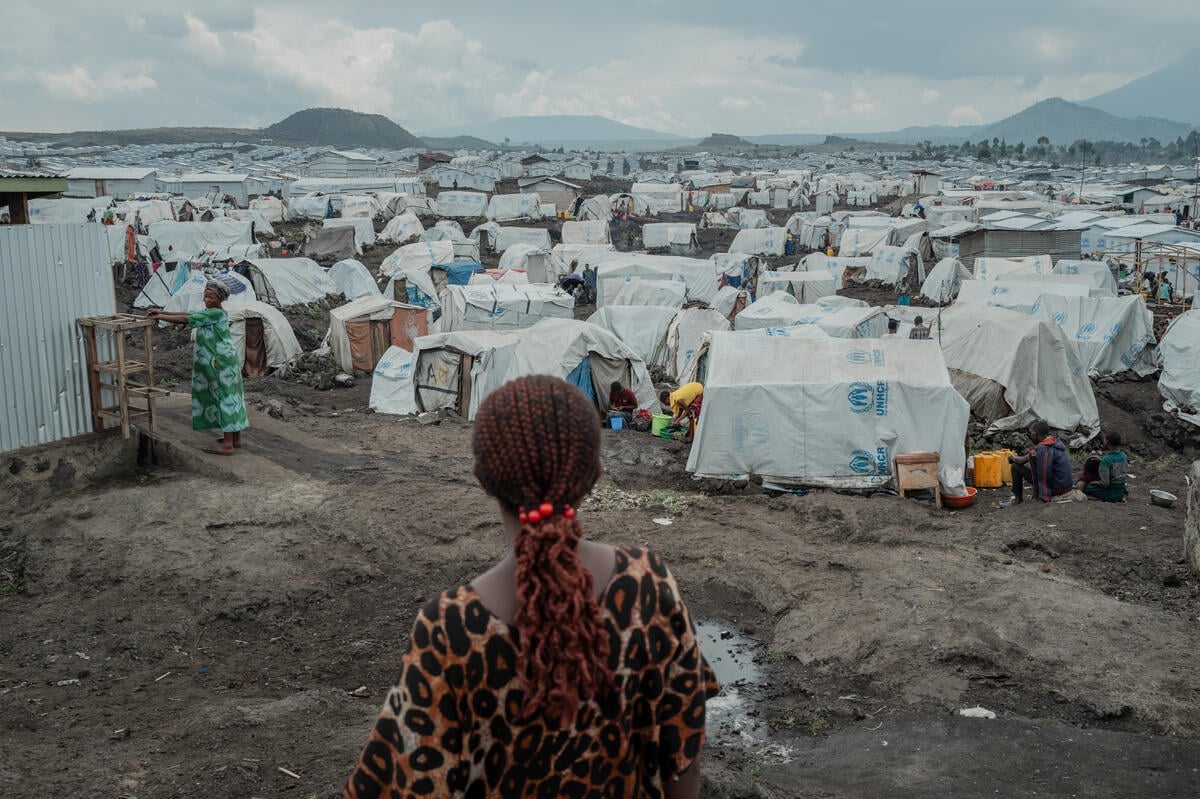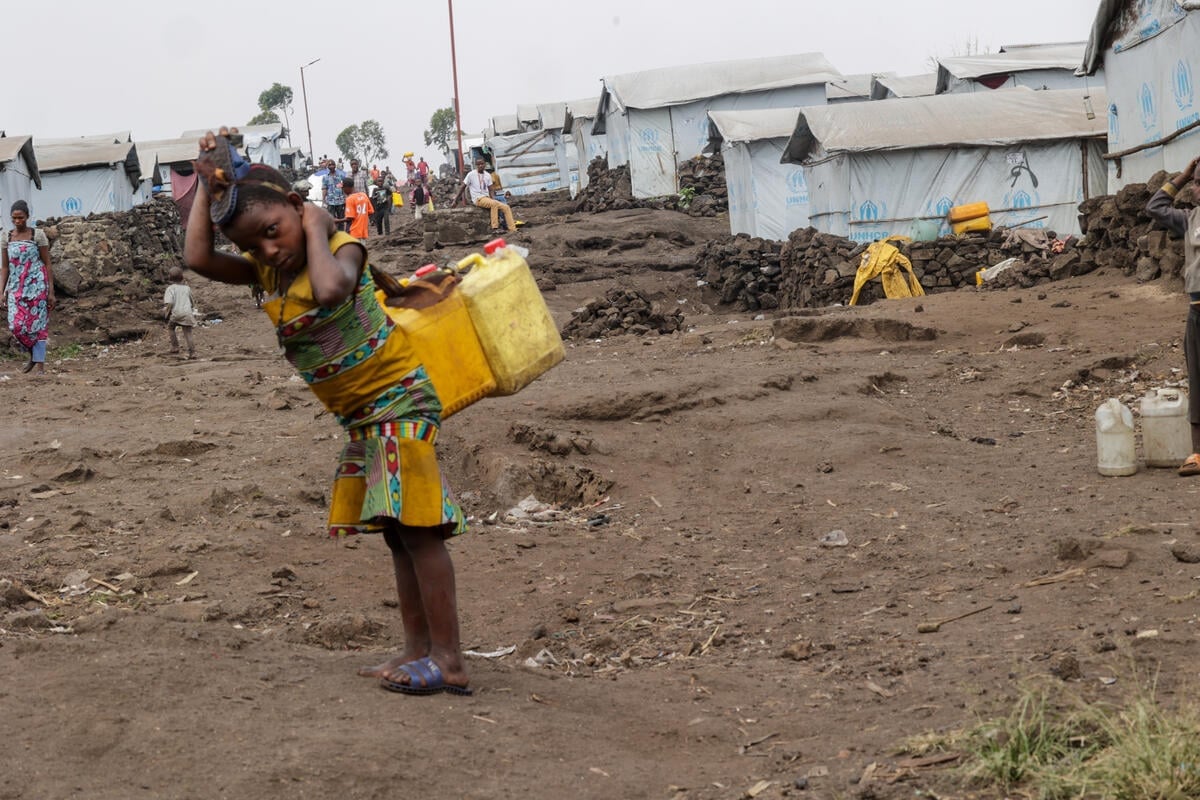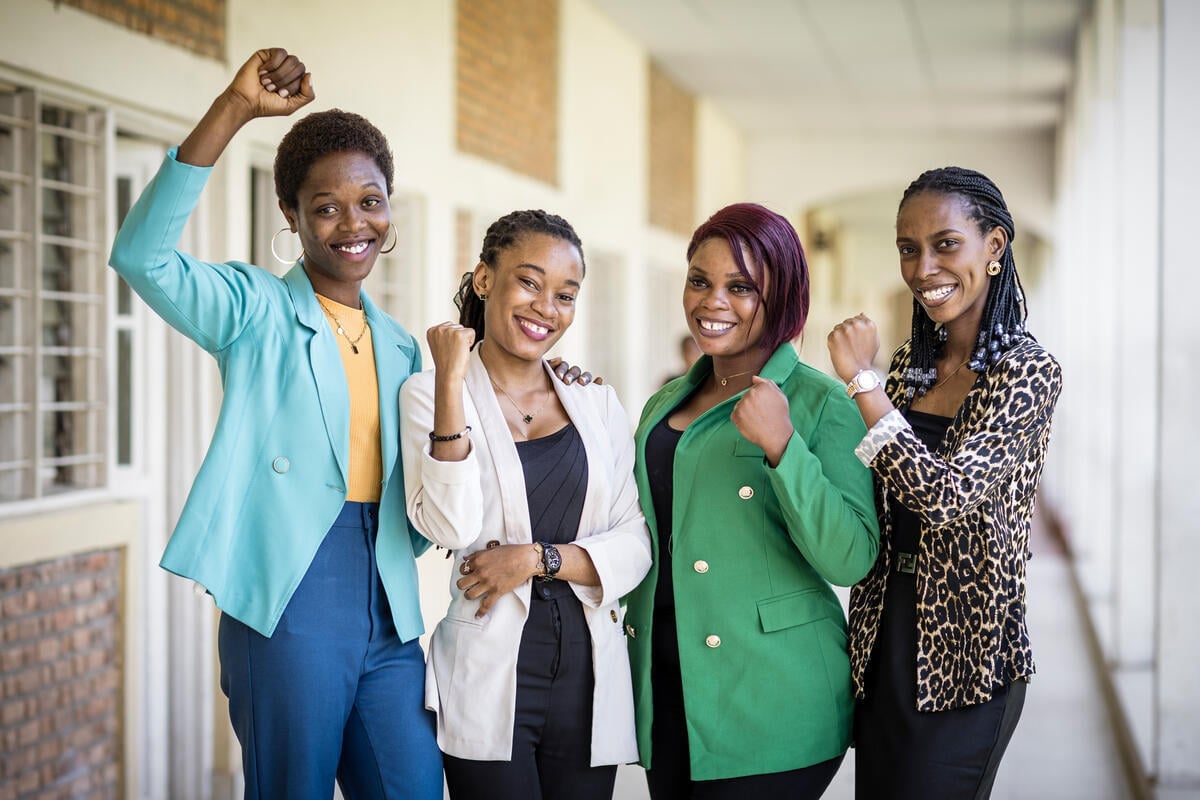Voluntary repatriation programme for Congolese refugees in the Central African Republic set to start this week
Voluntary repatriation programme for Congolese refugees in the Central African Republic set to start this week
This week, in the face of considerable logistical challenges, UNHCR is set to launch its voluntary repatriation programme for Congolese refugees in the Central African Republic (CAR), taking them back to their home province of Equateur, in the north-west Democratic Republic of the Congo (DRC). A first group of some 100 Congolese from the refugee camp of Molangue in CAR is scheduled to leave on Wednesday morning for the border town of Libenge in DRC. The convoy will stop en route at the border transit centre of Batanga, for a ceremony with DRC and CAR government officials to mark the start of the repatriation programme.
There are an estimated 12,000 Congolese refugees in CAR, who fled north-west DRC to escape the fighting during a 1998 rebellion against the government of Laurent Kabila. The first phase of UNHCR's facilitated repatriation programme extends to Equateur province only, which the agency considers safe for return. During this first phase, UNHCR plans to repatriate 2,247 Congolese from CAR before the end of the year, at the rate of about 100 refugees a day, going to Libenge and surrounding villages at first, then to Gemena further east from the border, and finally to the more remote areas of Gbadolite and Mbandaka.
Despite the relatively small numbers involved, this repatriation exercise presents considerable logistical challenges as it is taking place in some of the most difficult terrain in the world. Roads in the region are virtually non-existent, torrential downpours are common, and it can take up to ten hours to travel a 100-kilometre stretch of road. UNHCR has organised several modes of transport for the refugees - including boats to cross the Ubangui River that marks the border between CAR and DRC, trucks to get through thick forests, and planes for areas where precarious airstrips exist but there is no other means of access.
Meanwhile, on the other side of this vast nation, in the eastern province of South Kivu, the situation around Uvira remains calm after last week's protests at the return of over 1,300 Congolese refugees from Burundi. After spending a few days at a transit centre in Uvira, the majority of the returning refugees have now all been accompanied back to their home villages under military protection. A few vulnerable cases will be taken home by helicopters. Latest reports indicate that the DRC embassy in Burundi has received applications from an additional 500 Congolese refugees who wish to repatriate. UNHCR is not facilitating the return of refugees to South-Kivu, because we do not consider that conditions in the area are safe for return. However, the refugee agency has sent emergency staff to Uvira to monitor the situation and put in place an assistance programme with other agencies for those refugees who do go back.


